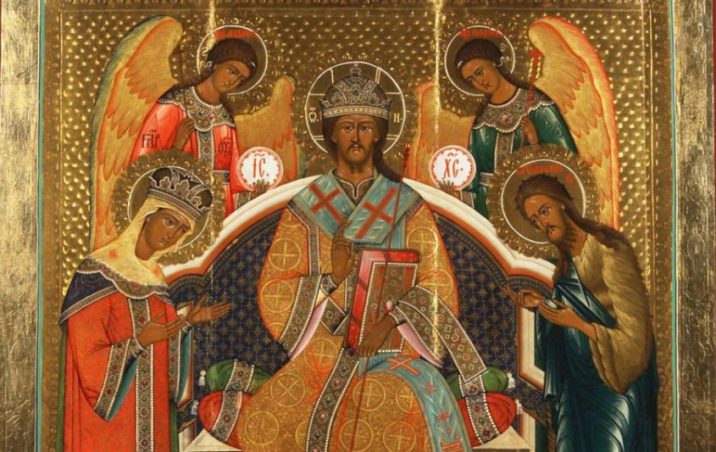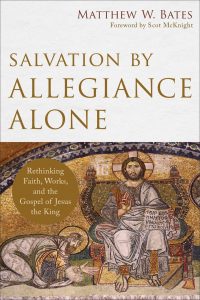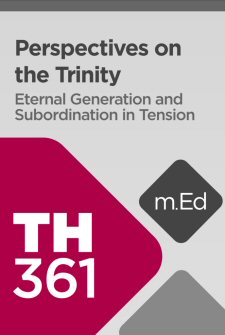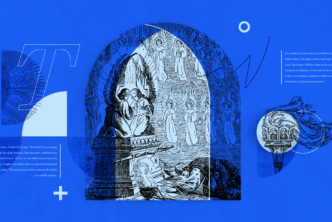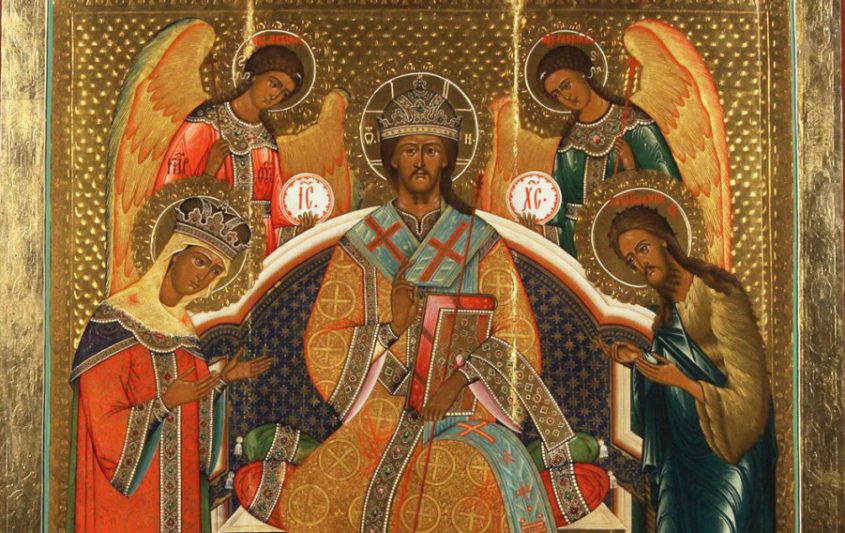
Here in Part 2, we discuss his “allegiance alone” thesis and its impact on the five solas and eschatology, among other topics.
Be sure to check out Part 1 if you haven’t already, where Matt talks about the impetus for the book, his disciplined writing habits, and the importance of prayer to his work as a theologian. And stay tuned for Parts 3 and 4 in coming weeks: subscribe to theLAB here.
theLAB: Of the Reformation solas, only yours seems completely dependent upon human agency. All the rest are due to God’s agency, whether that be scriptura, gratia, doxa, fides (as a gift from God, Eph 2:8), or Christos. How would you respond to the criticism that your sixth sola fails to meet the standard of the others due to misplaced agency?
MB: First, I am not arguing for a sixth sola, but primarily seeking to advocate for a truer understanding of sola fide (by faith alone). My exploration seeks to uphold the solas while seeking greater precision with respect to their true biblical boundaries. I do conclude that sola gratia (by grace alone) and soli Deo gloria (for the glory of God alone) need to be nuanced in particular ways in order to stay faithful to the biblical vision. This is because grace and boasting have both been misunderstood with regard to works (of Law). As far as I am aware, I am not seeking to add distinctive shades of meaning with regard to Christ alone or Scripture alone.
Second, in Salvation by Allegiance Alone I never state that pistis is solely dependent on human agency rather than God’s agency. In fact, quite the opposite:
Grace in the sense of God’s prior activity precedes ‘faith,’ for God first had to bring about the good news before it could be proclaimed and before allegiance to Jesus as Lord could be confessed (Rom. 10:9–14). Moreover, God is the creator, and every good gift comes from God (James 1:17), so we must affirm God as the ultimate source of ‘faith’ and all else. (p. 105)
What is being claimed is that faith, enabled by grace, is the only contribution that we make to our salvation. (p. 122)
So I do assert that in some sense the ability to render allegiance to Jesus the king is either due to God’s agency, or is at least a gift bequeathed to our libertarian agency in the wake of the Christ-event. Yet since Scripture puts far more emphasis on our agency with regard to pistis than God’s agency, throughout the book I frequently speak about our own human agency in giving pistis to Jesus the king. In so doing I am trying to give the same weight of emphasis that we find in Scripture. Yet I deliberately leave the nature of God’s agency with respect to our own underdetermined.
Although a full discussion would take us too far afield (and beyond my real competency), in terms of philosophical theology, this discussion pertains to whether humans have libertarian free will or merely compatabilist free will. Libertarians stress that, although constrained by circumstances, humans are not controlled by circumstances, but can genuinely choose among multiple options, because God grants them primary causal agency as a gift. Meanwhile for compatibilists, humans freely choose what they desire, while all desires, circumstances, and hence choices are still absolutely controlled by God. Broadly speaking the vast majority of Christians (Catholic, Orthodox, Anglican, and Methodist-Wesleyan-Arminian) affirm libertarian free will, while a small but vocal minority, especially the Calvinist (Reformed) tradition, has favored compatabilism. Molinists nuance the libertarian free will position, claiming divine foreknowledge apart from divine foreordination is possible because God has foreknowledge of every possible future circumstance and choice, but this knowledge is not necessarily causal.
I do find it interesting that in some systems of theology God’s absolute sovereignty does not extend to God’s own self-life inasmuch as God is not allowed to self-limit his sovereignty over the human will. Those tempted to follow this theological trajectory would do well to ponder with great care the Incarnation. In taking on human flesh, the Son never ceases to be fully God, but he deliberately limits some of his divine prerogatives (e.g., omniscience, Matt 24:36) during his earthly sojourn for the sake of the plan of salvation.
So in the Incarnation we have a theological precedent in which it is certain that the triune God does self-limit for the sake of the saving plan. Should we be surprised, then, if God self-limits in other ways? Could it be that God who is absolutely sovereign exercises his sovereignty to self-limit his omni-causality, so that we might have libertarian free will to choose or reject the offer of salvation in Christ? If we had time and space, this could lead into a further dialogue about the extent of the bondage of the will and how exactly that bondage has been overcome through the Christ-event.
theLAB: What is the difference between human allegiance to God, human allegiance to Jesus, and the allegiance that Jesus gives to God? On page 43, for example, you talk about Jesus’ allegiance to God the Father in explaining the difficult phrase, “from faith to faith” (Rom 1:17) but I’m interested to know what this says about the relationship of the Father to the Son, and thus our relationship to both members of the Trinity. In other words, if I give allegiance to Jesus, am I simultaneously giving allegiance to God the Father? And furthermore, how does my allegiance correspond to Jesus’ allegiance? Finally, what is the role of the Holy Spirit in all of this? Do we also give allegiance to him as God?
MB: Salvation by Allegiance Alone doesn’t seek to defend traditional Christian ideas about the Trinity; it simply presupposes their truth. (For a fresh comprehensive treatment, see Fred Sanders, The Triune God; on the biblical origins, consider my The Birth of the Trinity.)
Within traditional Christian theology, there is a justly famous rule pertaining to the Trinity: opera trinitatis ad extra indivisa sunt (“works of the Trinity directed toward the external world are indivisible”). This means that when the Scripture speaks of the Son healing or the Spirit indwelling, we can never suggest that the Father is not likewise equally involved in the action (see e.g., John 14:10-12).
Perhaps we should coin a similar rule with regard to individual Christians and the Trinity: fides ad personas trinitatis indivisa est (“allegiance directed toward the persons of the Trinity is indivisible”). That is, when we give loyalty to Jesus the king, because he is the flawless image of God the Father, we are simultaneously and indivisibly giving loyalty to the Father (“The one who confesses the Son also has the Father”; 1 John 2:23). And because the Spirit is the Spirit of the Father and the Son (e.g. Rom 8:9), loyalty to the Spirit entails loyalty to the Father and Son.
If this rule is accepted, then consider this corollary: to the degree that we have faulty ideas about the nature of the Father, Son, and Spirit, to that degree we are yielding our allegiance to some other thing.
Fortunately, however, as I explain in the book, we are not saved by our own perfect allegiance (pistis) any more than we are saved by our perfect “faith” as traditionally conceived. Who, after all, would argue that we must have perfect “trust” in Jesus’ saving power in order to be saved? Rather, we are saved by the perfect allegiance of Jesus the king.
Jesus’s allegiance, then, is different from ours because his was without fault. He makes up for our lack. Because Jesus is the atoning king, our imperfect allegiance (pistis) unites us to Jesus, so that we share in his perfect allegiance and righteousness.
theLAB: Your proposal hinges upon a particular understanding of eschatology, which seems closely aligned with N.T. Wright’s view. In that eschatological paradigm, thanks to Jesus’ ascension he has been crowned King of the universe and currently reigns over all creation, seated at the right hand of the Father. But what if the eschatological paradigm changes? Does your thesis still work within an eschatological viewpoint where the enthronement of Jesus, or, at the very least, the extent of his rule, awaits his second coming or some other point in the future? In other words, what happens to allegiance if Jesus hasn’t (yet) completely fulfilled the Davidic promises?
MB: Although I suppose it would be possible to speak of present loyalty to the purely future king, the strength of my proposal does depend largely on the reality of Jesus’s present kingship or lordship. However, to assert that this is a certain scholarly construct, or “Wright’s view,” is (to my mind) quite misleading. Jesus’s present kingly status is so clearly affirmed by Scripture that such a conclusion is nearly unshakeable.
Are there any New Testament scholars who would object to the idea that Jesus is presently reigning as the Lord or the Christ? If so, they had better re-read the New Testament. As Peter states in his Pentecost sermon, “God has made this Jesus, whom you crucified, both Lord and Christ” (Acts 2:36). Or as Paul puts it, “For he must reign until he has put all his enemies under his feet” (1 Cor 15:25). Numerous other passages refer to Jesus’s present rule at the right hand of God (e.g., Acts 5:31; 7:55-56; Rom 8:34; Eph 1:20; Col 3:1; Heb 1:3; 1 Pet 3:22). Jesus is now reigning as the king, so we can give our allegiance to him, even if that present reign has yet-to-be-realized future dimensions. So, my proposal does not rest on a peculiar scholarly construct, but on straightforward, robust biblical evidence.
theLAB: What would you say to the criticism that your focus on allegiance will lead to an overemphasis on one aspect of soteriology to the exclusion of a more comprehensive understanding? What about salvation by participation alone? or adoption alone? or inheritance alone? Or, more controversially, by works alone? Aren’t all of these facets, centered on and derived from the Christ-event, just as important as the others? Or is “allegiance” a meta-category that incorporates them all?
MB: An exclusive focus on allegiance would certainly be wrongheaded and would fail to do justice to the numerous rich metaphors surrounding salvation. I think (hope?) that I am sufficiently clear about this in the book itself. For example, I stress that we must take seriously justification, redemption, adoption, washing, clothing, regeneration, and other metaphors (p. 165). I also discuss the centrality of participation (or union) extensively in Ch. 8. All of these metaphors connect to the Christ-event.
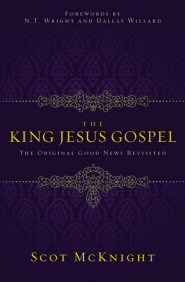
I do think allegiance is an especially helpful meta-category because of its integrative force. It is able to explain how vital topics such as messianic kingship, servanthood, the law of Christ, Spirit-empowered obedience, trust, proper belief, works, Jesus’s saving activity, the kingdom of God, justification, and the righteousness of God interlock. Yet, the allegiance metaphor itself does not naturally suggest adoption into God’s family, or the like. It is not that allegiance has no bearing on adoption, but we must coordinate multiple metaphors if we are to understand our salvation fully.

With Logos, you can explore perspectives on the Trinity with Wayne Grudem, Millard Erickson, Fred Sanders, Bruce Ware, and Kevin Giles. Buy today and save 40% during the Tackling Tough Topics sale.

